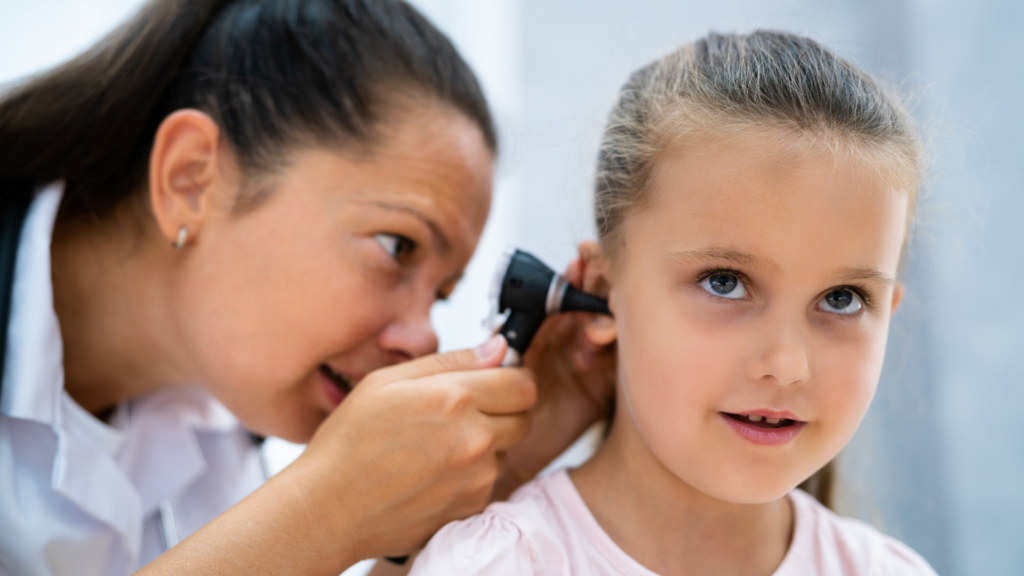Paediatric ear, nose and throat (ENT) care specializes in the examination, diagnosis and treatment of diseases and disorders of the throat, nose and ears in children. This service covers a wide range of conditions, from common infections such as middle ear infections to complex problems such as congenital anomalies or speech development delays.
Language development delay: Delays or problems in the development of language in children can be caused by a variety of factors, from hearing loss to neurological disorders to general developmental disorders.
Hearing loss: Hearing impairment in children can have various causes. The most common cause is a tympanic effusion (accumulation of fluid in the middle ear), but congenital or acquired sensorineural hearing loss is also possible.
Middle ear infections: Inflammation of the middle ear occurs particularly frequently in children as part of upper respiratory tract infections due to the anatomical conditions. In acute cases, children suffer from pain and often fever, but recurrent middle ear infections in particular can lead to tympanic effusion.
Obstructed nasal breathing: Restrictions in nasal breathing, which are usually caused by enlarged adenoids (“nasal polyps”), allergies or rarely a crooked nasal septum, can lead to problems such as sleep disorders, snoring and impaired jaw development.
Adenoid hyperplasia (= enlarged pharyngeal tonsil, “nasal polyps”): Apart from obstructed nasal breathing and the problems it causes, an enlarged pharyngeal tonsil can lead to chronic tympanic effusion if the tonsil tissue obstructs the Eustachian tube and thus impedes ventilation of the middle ear.
Snoring: Snoring in children is usually caused by obstructed nasal breathing. Obstructive sleep apnoea can occur, particularly if the palatine tonsils are enlarged in addition to the pharyngeal tonsils, but also in the case of facial or jaw anomalies, obesity and various other illnesses. In this case, the upper airways repeatedly close during sleep, which is noticeable through “breathing interruptions”. These children then often suffer from strained breathing, daytime tiredness, headaches, hyperactivity and difficulty concentrating.











